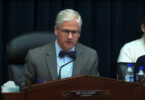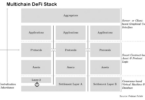On the 11th of June, the U.S. Department of Energy (DOE) awarded tech firm Xage Security with a research and development grant. The federal grant will fund Xage’s work in securing networks using distributed ledger technology (DLT), which includes demonstrating how the U.S. power grid could be protected with blockchain.
California based Xage announced its Series A funding round last year, raising $12 million from the likes of G.E. Ventures. The firm’s key product is Xage Security Fabric, released late 2017, a DLT based security system which uses the naturally immutable structure of blockchain to detect cybercrimes.
Xage has already been granted five patents for this innovation and boasts clients such as ABB and Dell. Yesterday’s announcement shows the firm has also impressed the DOE with its proposal to use its Fabric for the power grid.
The Secretary of Energy, Rick Perry, praised the funding for new technology: “Greater opportunities to enhance science and technology research and development strengthen the economic security for our entire country.”
Structures based on blockchain cannot be tampered with because of the use of hashes, which are known as digital fingerprints. Like a real fingerprint, it is unique to the input and cannot be faked by a hacker. Additionally, blockchain is distributed, so there’s no central place to hack. If one server is tampered with, it will be out of sync with other servers and hence detected.
So, Xage applied this technology to protect infrastructure in anticipation of the Internet of Things (IoT), where connected objects may be susceptible to attackers faking a digital identity.
The DOE has funded Xage to work on protecting its utility networks, as newer technologies are being used alongside legacy devices. While the new technologies bring the DOE closer to an IoT reality, the older devices, with older security systems, must still be in operation.
The CEO of Xage, Duncan Greatwood, is optimistic about the firm’s role: “Blockchain has an ability to establish consensus across decentralized networks, and at the great scale that the U.S. electrical grid requires.”
“We are looking forward to working with the DOE to help fortify the grid and its operations and development utilizing a blockchain-protected cybersecurity platform.”







